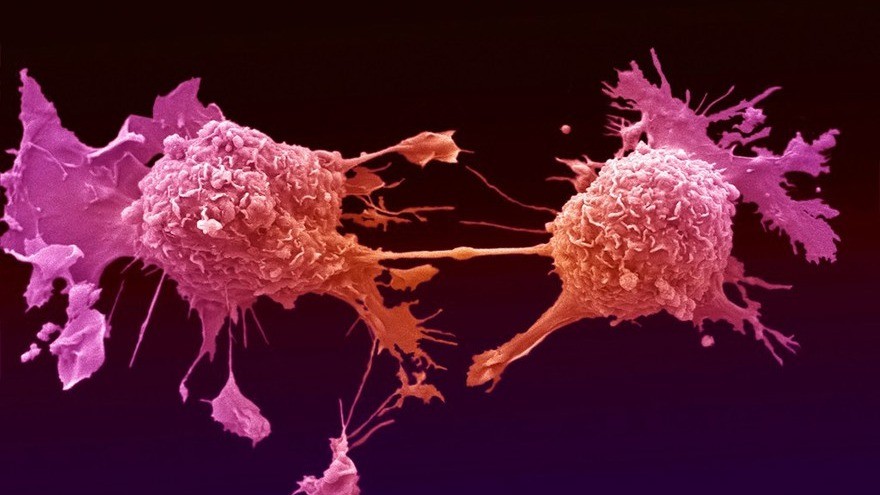Cancer Research UK shared on LinkedIn:
“With our funding, scientists in Cambridge have developed a ground-breaking urine test to detect early signs of lung cancer.
The test identifies ‘zombie’ cells, which create an environment where cancers can emerge, helping to spot lung cancer early for faster treatment and better outcomes.
We’re proud to back this research with a grant of £88,000 at the University of Cambridge.
By Tim Gunn
With our funding, scientists in Cambridge have created a urine test that can detect some of the first signs of lung cancer.
The test, which identifies ‘zombie’ cells that can clear a path for cancers to emerge, is the first of its kind anywhere in the world.
The researchers behind the technology, led by Professor Ljiljana Fruk and Dr Daniel Munoz-Espinat the University of Cambridge, believe it could help doctors spot lung cancer at its very earliest stages. That would mean patients get treatments sooner, giving them a better chance of overcoming the disease.
So far, the researchers have proved that their urine test works in mice. Soon, they hope to begin trialling it in humans. After that, it could play an important part in changing the fact that lung cancer is usually diagnosed after it has begun to grow and spread, when doctors have fewer options for treating it.
We powered the research, which is happening across the University of Cambridge’s Department of Chemical Engineering and Biotechnology and new Early Cancer Institute, with a grant of £88,000.
From the lungs to the bladder
The senescent (a scientific term that means ‘old’) cells the urine test is designed to spot are often referred to as ‘zombie’ cells. This is because, although they aren’t quite dead, they can’t grow and divide the way living cells are supposed to.
Even so, when senescent cells start to accumulate in one place, they can remodel their environment to make it easier for cancerous cells to grow and divide uncontrollably.
‘We know that before cancer emerges there are changes in the affected tissues,’ Professor Fruk explained to Ella Pickover, a journalist at the Press Association.
‘One of the changes is the accumulation of damaged cells that are not damaged enough to be removed, but enough to release signals that reprogram the tissue and make it perfect for cancer development.
‘We identified a specific protein released by these cells in lung tissue and designed a probe that is cut into two pieces in its presence.’
The test starts with an injection that introduces that probe, or sensor, into the body. After the probe is cut in two by the target protein, the smaller part travels to the kidneys and is released through the bladder in urine.
The second part of the test makes the probe visible in urine. Scientists ‘develop’ urine samples by adding a silver solution that was once commonly used in analogue photography, causing them to change colour.
‘By monitoring the colour of urine after the injection of the probe we can say if cells are present in lungs that would indicate the early signs of pathological changes that might lead to cancer,’ Fruk said.
Using protein probes to develop urine tests for other cancer types
The new approach has the potential to identify lung cancers months or even years before they start to cause symptoms. In some cases, this will make it possible to cure the disease without the need for surgery. It could also be a cheaper alternative than scans, which are now helping find more lung cancer cases earlier as part of a new targeted lung cancer screening programme in England.
As well as moving into the final stages of pre-clinical validation (or testing outside of humans) for their lung cancer urine test, the research team in Cambridge are now beginning to explore ways of using the same technology for other cancer types, including breast cancer, pancreatic cancer and the skin cancer melanoma.”


